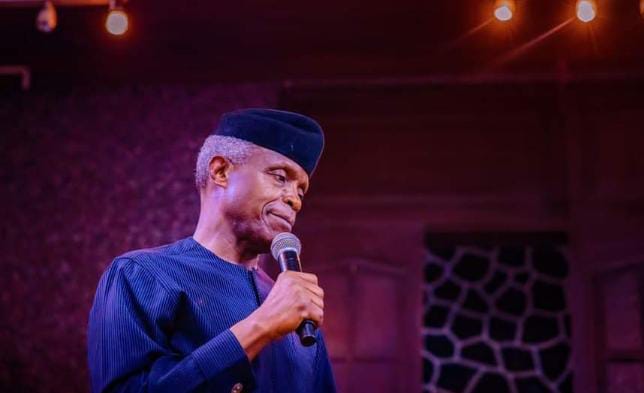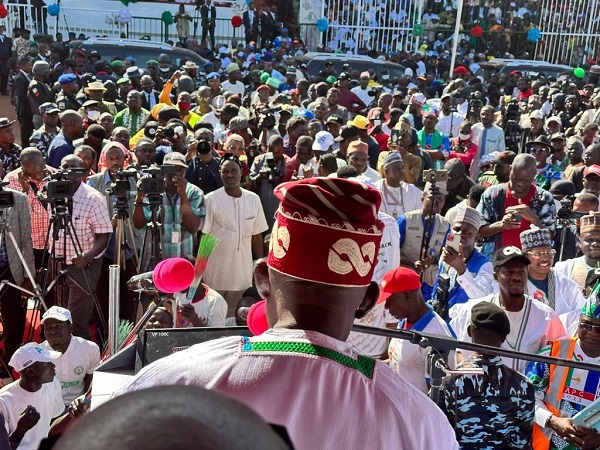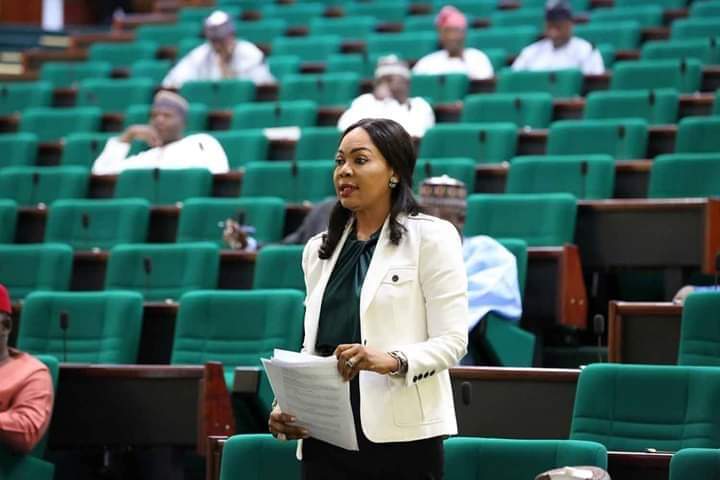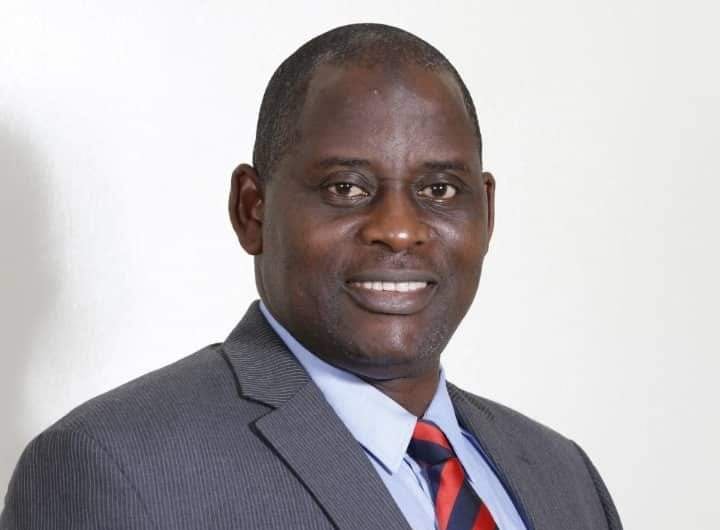African leaders are often lauded for their ability to harness the power of technology to drive economic growth and development. However, there is one asset that is often overlooked – the African people. The African continent is home to some of the most talented and innovative people in the world. With the right support, these individuals can be a driving force for change and progress. Through initiatives such as the Africa Technology Fellowship program among others, African leaders are beginning to tap into this vast pool of talent and potential. By investing in technology and education, African leaders can help their countries unlock a bright future.
In Africa, economic growth has often been stifled by a lack of access to basic resources and infrastructure. This has been particularly true in rural areas, where poverty rates are highest. Technology can help close this gap by providing access to essential services and connecting people to opportunities. It will amaze you that this was one of the reasons for the massive success of Alibaba – he simply connected people with what they were looking for.
However, there is a disconnect between the way technology is being used and the needs of African citizens. For example, mobile money platforms are not always designed or continuously redesigned with user-friendliness in mind, preventing many from benefiting from them. In addition, many Africans are still excluded from the digital economy due to a lack of skills or resources. There is a need for African leaders to better understand how technology can be used to empower their citizens. Only then can they harness its full potential and create lasting change in Africa. The role of technology in developing Africa is evident through the many cell phones, computers, and other digital devices that are prevalent across the continent. But, its potential is much greater than that – with the right apps, a typical smartphone can be the mobile office for several tech startups offering both in-person and remote value-added services (like book translation service to other languages, even conversion to audio versions, with remote editors everywhere). Technology can help African leaders connect with their people, solve problems more effectively, and promote transparency and accountability in sustainable ways.
Harnessing the power of technology will be critical for African leaders as they seek to develop their countries and improve the lives of their people. Through technology, leaders can connect better and more unique with citizens, understand their needs and concerns, and make decisions that are in the best interest of the people. Imbued with some artificial intelligence, leaders can enhance that response process while learning from the outcomes. Additionally, technology can help leaders solve problems more effectively and efficiently. For example, if there is a drought in a certain region, mobile technologies can be used to deliver water to those who need it most quickly and efficiently. Startups can also leverage the same power to serve as opportunity bridges to share information and even resell products or services across countries, states, or between urban and rural areas – the value in connectivity alone is enormous.
Finally, technology can promote transparency and accountability among African leaders. For example, if leaders are using social media to communicate with citizens, they must be responsive to questions and concerns raised by users – tech (AI) systems can be trained to handle this for governments. Additionally, if government officials are using email or text messaging to communicate with one another, those messages should be made available to the public so that citizens can hold their leaders accountable for their actions – public office holders.
African leaders have long recognized the power of technology to improve the lives of their citizens. But with the advent of social media (or what I call you media) and mobile technologies, there is a new opportunity to harness the greatest asset African leaders have: people.
Through technology, African leaders can connect with more people than ever before, and empower them to create change in their communities. I imagine what apps like Youtube (where everyone can learn or broadcast something that is of interest to them for free) could make possible in rural communities – governments and businesses need to think of how such huge resource banks could be channeled toward the positive development of their people. By harnessing the power of technology, African leaders can tap into the collective intelligence of their citizens, and multiply their own leadership capacity in measurable ways.
There are many ways for African leaders to use technology to connect with their people. Social media platforms like Twitter and Facebook offer a direct line of communication between leaders and citizens. Mobile technologies like SMS and USSD can be used to reach people in even the most remote areas. And new platforms like Ushahidi and M-Pesa are providing innovative solutions to challenges faced by communities across Africa, which more entrepreneurs can understudy to duplicate in their countries – businesses are allowed to copy-right.
By connecting with their people, African leaders can gain insights into the issues that matter most to them, and identify opportunities for collaboration and action. In this way, technology can help African leaders build stronger relationships with their constituents, and create a more participatory form of leadership. At this point, we should be doing a lot more in remote meetings and chat-in or phone-ins than physical meet-ups for a lot of the lower and upper house meetings. And this will require a lot of African leaders to grow in their level of competence to be able to manage real issues.
Competence is a critical component of effective leadership. Leaders must be able to set the vision for their countries and organizations that inspire others to achieve it. They must also be competent in the day-to-day operations of their countries or organizations, including financial management, human resources, and other areas. Weak leadership is one big menace plaguing the African continent, and we must start leveraging technology to extend leadership development courses and certifications to families. A good example of training is John Maxwell’s “Developing the leaders around you”, which helped make me realize early that to multiply growth, it was better to build leaders.
Advertisement
Moreover, technology can help leaders become more competent in many ways. First, it can provide them with information and data that they can use to make better decisions. Second, it can help them connect with experts and mentors who can advise them on how to improve their competence – so many subscription-based services are available. Third, it can give them tools to manage their organizations more effectively. With some search, a lot of manual processes can be automated even remotely outsourced.
However, technology cannot replace the need for competent leaders, but it can empower them to be even more effective in their roles. African leaders should embrace technology as a tool to help them build better versions of themselves and by extension a brighter future for their countries and continents – the enormity of valuable information available through the internet forbids naivety.
That said, it is no secret that the key to any successful organization is its people. The same can be said of a nation. A leader’s most important asset is the character of her citizens. In Africa, this is especially true. The continent has experienced tremendous growth in recent years, but it faces significant challenges. These challenges cannot be met without strong leadership. And strong leadership requires strong character. African leaders must be honest, transparent, and accountable – not sure I or any of us would higher a chartered accountant or lawyer that is a thief. They must be willing to make tough decisions and stand up for what is right – more of why I think Citizenship Education should be thought at all our secondary schools. Our citizens must be encouraged to cultivate a culture of excellence and integrity from an early age.
Advertisement
In other words, character matters. It always has and it always will. Just as Helen Keller touts, Character cannot be developed in ease and quiet. Only through experience of trial and suffering can the soul be strengthened, ambition inspired, and success achieved. Technology can help African leaders harness the power of their people and build strong, prosperous nations. But at the end of the day, it is up to the leaders themselves to set an example and lead by example. This corroborates John Maxwell, who says that everything rises and falls on leadership, and that character is the foundation of great leadership.
Despite the many obstacles that Africa faces, the continent is home to some of the most inspiring and innovative leaders in the world. These leaders are using technology to develop their people into great leaders. One African leader who is using technology to develop his people is Rwandan President Paul Kagame. President Kagame has been using technology to connect with young Rwandans and provide them with leadership training. He has also used technology to create opportunities for young Rwandans to become involved in the country’s development process. Other African leaders are also harnessing the power of technology to develop their people into great leaders. Kenyan President Uhuru Kenyatta is using technology to connect with young Kenyans and engage them in the country’s development process. Ghanaian President Nana Akufo-Addo is using technology to improve access to education and provide opportunities for Ghanaians to participate in the country’s development. And the Nigerian President, Muhammadu Buhari’s leadership has generously allowed the passage of the Nigeria Startup Act 2022. As such, Nigeria should experience increased growth in the number of Startups in the country. Also, with the growth in the number of startups, there should naturally be a growth in the number of decent jobs available for Nigerians.
All the afore reveal that African leaders are harnessing the power of technology to develop their people into great leaders. This is resulting in a more educated and engaged population that is better equipped to participate in the continent’s development. And focusing on what works is important in that push, just as Warren Buffett has said that everybody’s got a different circle of competence. The important thing is not how big the circle is. The important thing is staying inside the circle. I think other leaders should simply copy what works in other countries and find ways to adapt the same toward the growth and development of their people and communities.
When it comes to technology, people are often the most important asset a company or country has. This is especially true in Africa, where leaders have access to a large and diverse population (comprised mostly of youths) that can be harnessed to drive economic growth and development. However, it is not enough to simply have access to a large people population. In order for African leaders to truly harness the power of their population, they need to ensure that their citizens are competent and have a strong character – a lot of the labels we got in the international community are traceable to the many fraudulent practices. But character without competence in leadership is flawed.
Advertisement
Competence refers to the ability to do something effectively and efficiently. Like Jaggi Vasudev, who quips, If you want to be successful, don’t seek success – seek competence, and empowerment; do nothing short of the best that you can do. It is essential for Africans to be competent in their chosen skills, and in order to be able to use technology effectively to deliver the same. Strong character, on the other hand, refers to moral qualities such as honesty, integrity, and courage. These qualities are important because they allow people to persevere in difficult times and make ethical decisions.
African leaders need to focus on developing both competence and character in their citizens if they want to harness the full potential of their people. Technology alone will not solve all of Africa’s problems; it takes capable and good-hearted people working together towards a common goal to really make a difference. I was recently driving a friend’s car whose fuel indicator was malfunctioning unknown to me, as the car suddenly went off in a very busy part of the Lagos municipal. I carefully parked away from oncoming vehicles by the next available opening. On finding out it was fuel, I got a jerrycan to go get some fuel, and there in front of me was a motorbike. Suffice it to say that he took me to the nearby fuel station and back without allowing me to reciprocate by paying him. He gave me a taste of the Nigeria of my dreams and then it suddenly dawned on me that the people we interact with on a daily basis sum up the experience of the country we have, good or bad. And I immediately resolved to pass the favor forward in agreement with Anna Sewell (Black Beauty) who says It is good people who make good places.
In conclusion, technology has the ability to connect African leaders with their people and other leaders in a way that was never before possible. Through social media, African leaders can share their vision for the future and connect with people from all walks of life. With the right technology in place, African leaders can create a more inclusive society where everyone has a voice in line with the United Nations SDG 10, which encourages the reduction of inequality within and among countries.
I remain open to deliberate conversations on Technology as it applies to Nation Building and personal development. Follow me on Medium: www.medium.com/@roariyo. Also, we can connect and chat as you send me an email: [email protected]
Advertisement
Add a comment






